
Cuisine
Israeli cuisine
Israeli cuisine is a melting pot of flavors and cultures, with dishes that range from savory to sweet. It is heavily influenced by the Jewish diaspora, as well as the Arab and Mediterranean cultures that surround Israel. Some of the most popular dishes include falafel, hummus, shakshuka, and schnitzel. Israeli cuisine is also known for its use of fresh herbs and spices, such as za'atar, sumac, and cumin.
Typical ingredients
Chickpeas, Eggplant, Tomatoes, Cucumbers, Olives, Pomegranates, Tahini, Za'atar, Sumac, Cumin, Parsley, Mint, Dill, Coriander
Presentation and garnishing
Israeli cuisine is often presented in a mezze-style, with small plates of various dishes served together. Garnishes may include fresh herbs, lemon wedges, and drizzles of olive oil.
The Israeli breakfast is a popular meal that typically includes eggs, salad, bread, and various spreads such as hummus and labneh.
More cuisines from this region...
Syrian cuisine, Lebanese cuisine, Jordanian cuisine, Iraqi cuisine, Palestinian cuisine, Mizrahi Jewish cuisine
History
Israeli cuisine has a rich history that dates back thousands of years. It has been influenced by the Jewish diaspora, as well as the various cultures that have occupied the region over time. Some of the earliest known Jewish dishes, such as challah bread and gefilte fish, originated in Israel. In more recent times, Israeli cuisine has been shaped by the influx of immigrants from around the world, who have brought with them their own culinary traditions.
Cultural significance
Food is an important part of Israeli culture, and is often used to celebrate holidays and special occasions. Many of the dishes are also symbolic, and have religious or historical significance. For example, challah bread is braided to represent unity, while matzo ball soup is eaten during Passover to commemorate the Jews' exodus from Egypt.
Health benefits and considerations
Israeli cuisine is generally considered to be healthy, as it emphasizes fresh ingredients and lean proteins. However, some dishes may be high in fat or sodium, such as fried falafel or shawarma. Vegetarian and vegan options are also widely available.
Israeli cuisine dishes

Sabich
Eggplant and egg sandwich
Sabich is a popular Israeli street food that is packed with flavor and nutrition. Made with a variety of fresh vegetables and spices, this dish is a healthy and satisfying meal option.

Ziva
Ziva is a traditional Moroccan dish made with lamb, vegetables, and spices. It is usually served as a main course.

Salatim
Salatim is a Hebrew term for a variety of small dishes served as side dishes with bread and hummus. These dishes are meant to be shared and are an essential part of Israeli cuisine.

Orez shu'it
Orez shu'it is a traditional Albanian dish made with rice, yogurt, and spices.
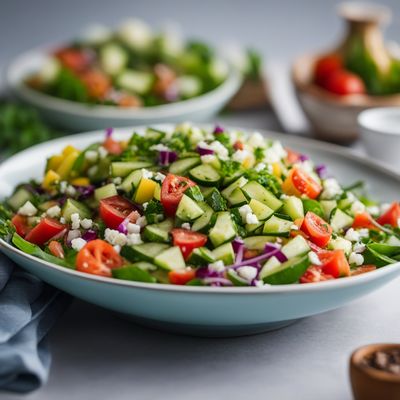
Israeli Salad
Israeli salad is a fresh and healthy dish that is made with chopped vegetables and herbs. It is a popular dish in Israel and is often served as a side dish or appetizer.

Israeli Breakfast
The Israeli breakfast is a hearty and flavorful meal that is typically served as a brunch item.

Sufganiyah
Sufganiyah is a traditional Jewish pastry that is typically served during Hanukkah. It is made with a sweet, yeasted dough that is deep-fried and filled with jelly or custard.
Israeli cuisine recipes Browse all »
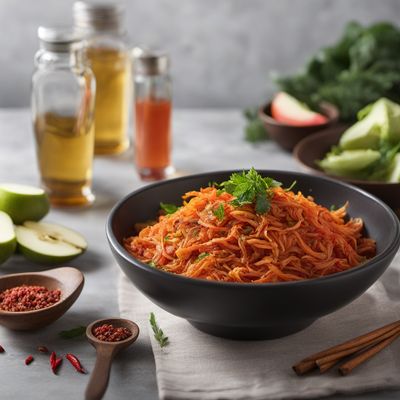
Israeli-style Spicy Pickled Cabbage
Zesty Israeli Kimchi: A Fusion of Flavors

Israeli-inspired Budapestbakelse
Middle Eastern Delight: Israeli-inspired Budapestbakelse

Israeli-inspired Curry Leaf Rice
Flavorful Israeli Curry Leaf Rice: A Fusion Delight

Kkwabaegi-inspired Sweet Israeli Pastries
Fluffy Cinnamon Delights: Israeli Twist on Kkwabaegi

Sacripantina with a Middle Eastern Twist
Middle Eastern Delight: Israeli Sacripantina

Israeli-inspired Rice Pilaf with Herbs and Spices
Herb-infused Israeli Rice Delight
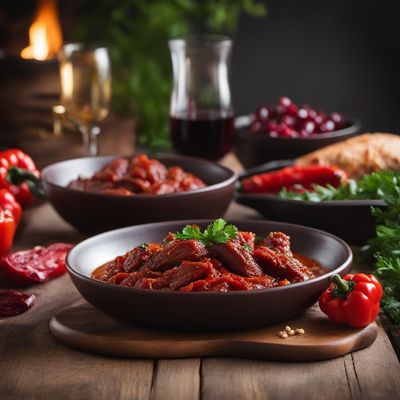
Israeli-style Chorizo in Red Wine Sauce
Savory Israeli Chorizo Delight

Israeli-style Tuaran Mee
Savory Israeli Noodle Stir-Fry with Tuaran Mee
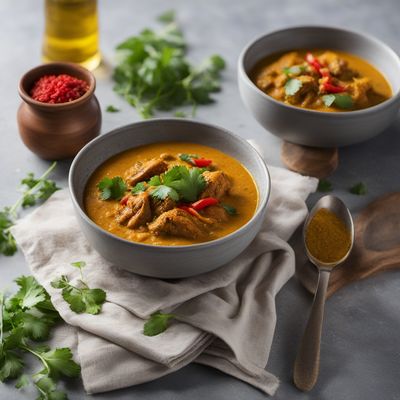
Israeli Spiced Coconut Curry
Middle Eastern Twist: Israeli Spiced Coconut Curry
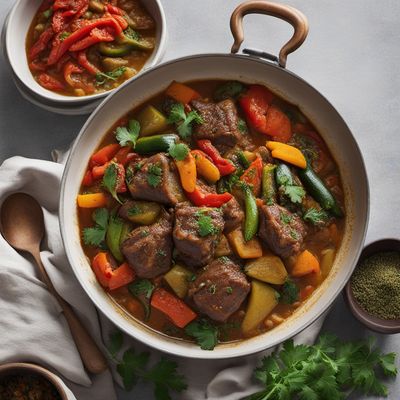
Israeli-style Lamb and Vegetables Stew
Middle Eastern Lamb Delight
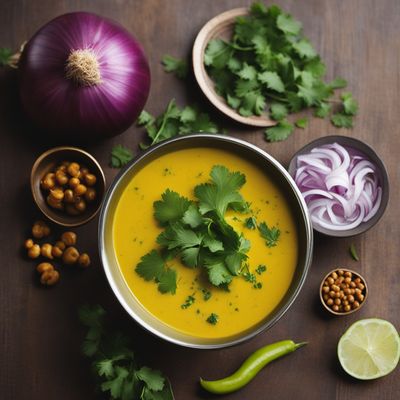
Israeli-style Kadhi
Creamy Chickpea Stew with Israeli Flair

Sabich - Israeli Eggplant and Hummus Sandwich
Middle Eastern Delight: Sabich - A Flavorful Eggplant and Hummus Sandwich